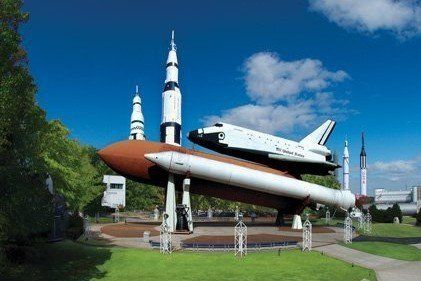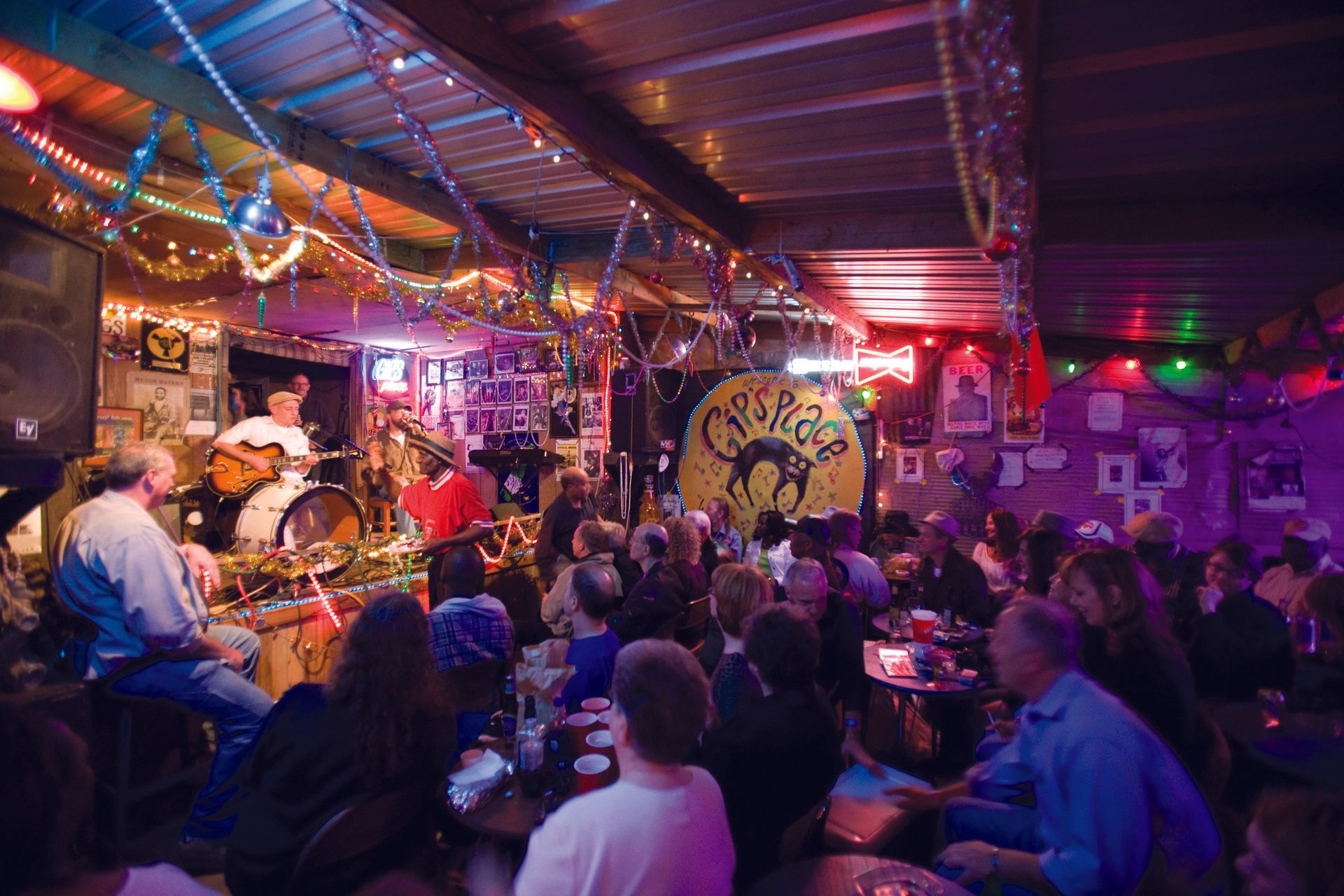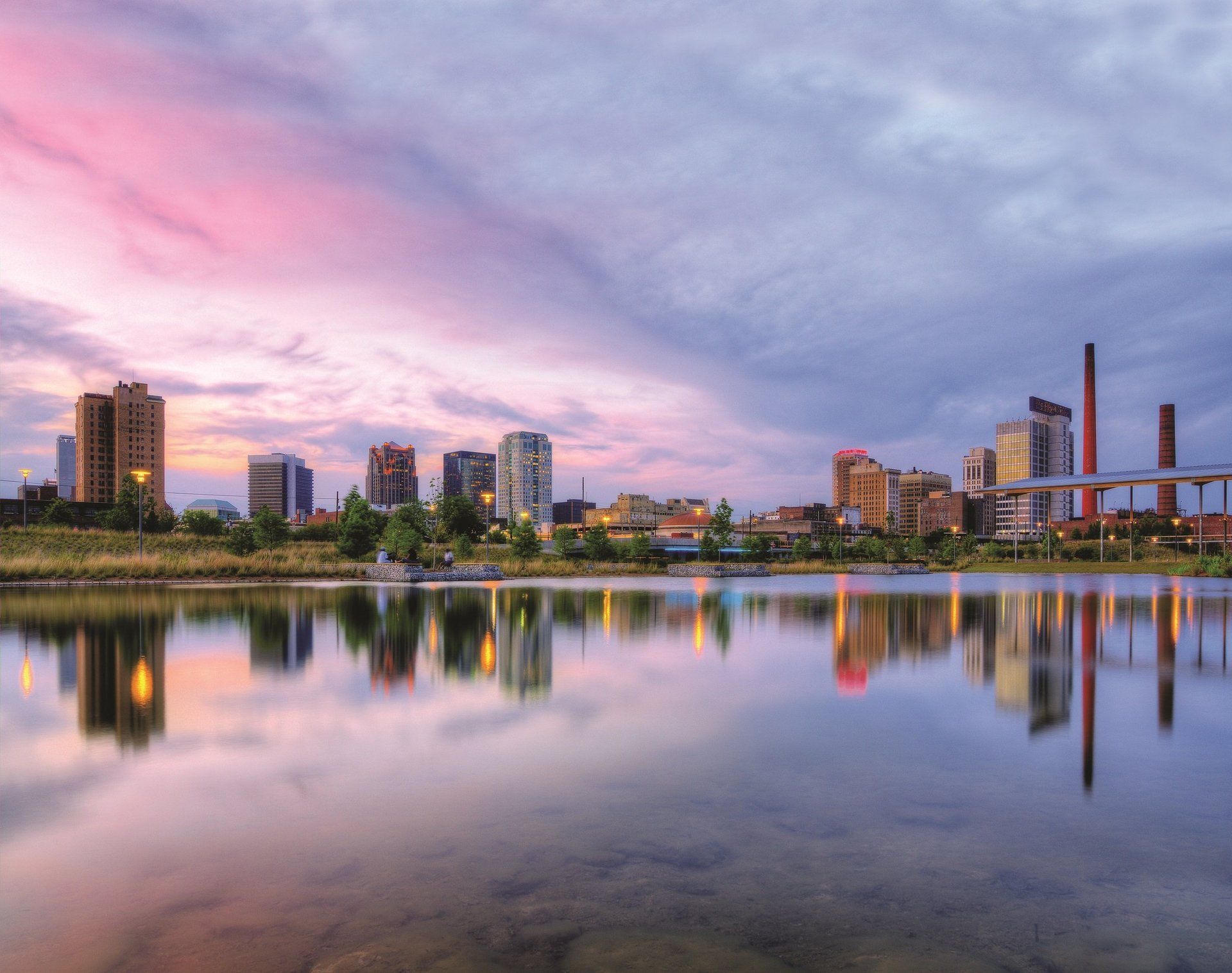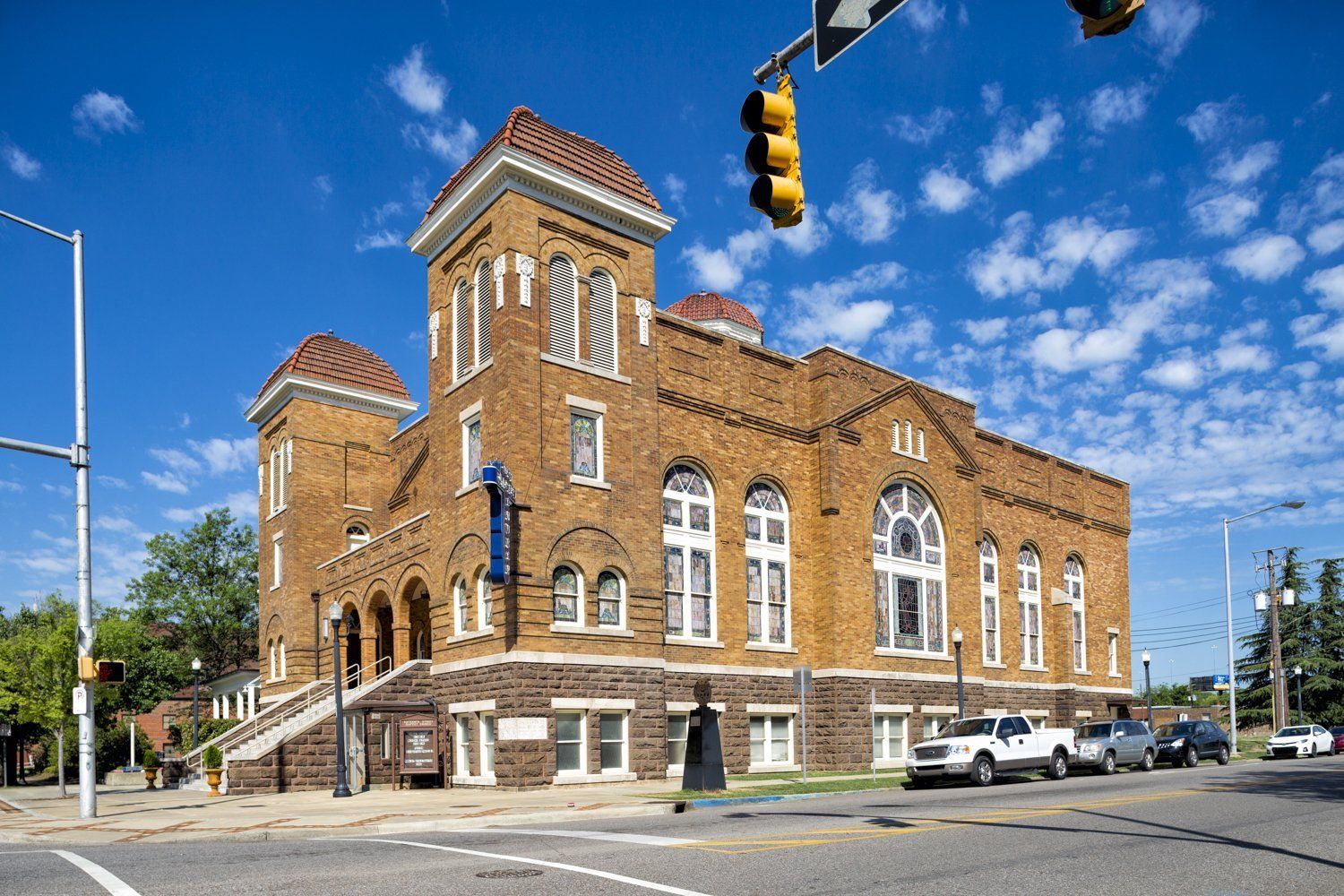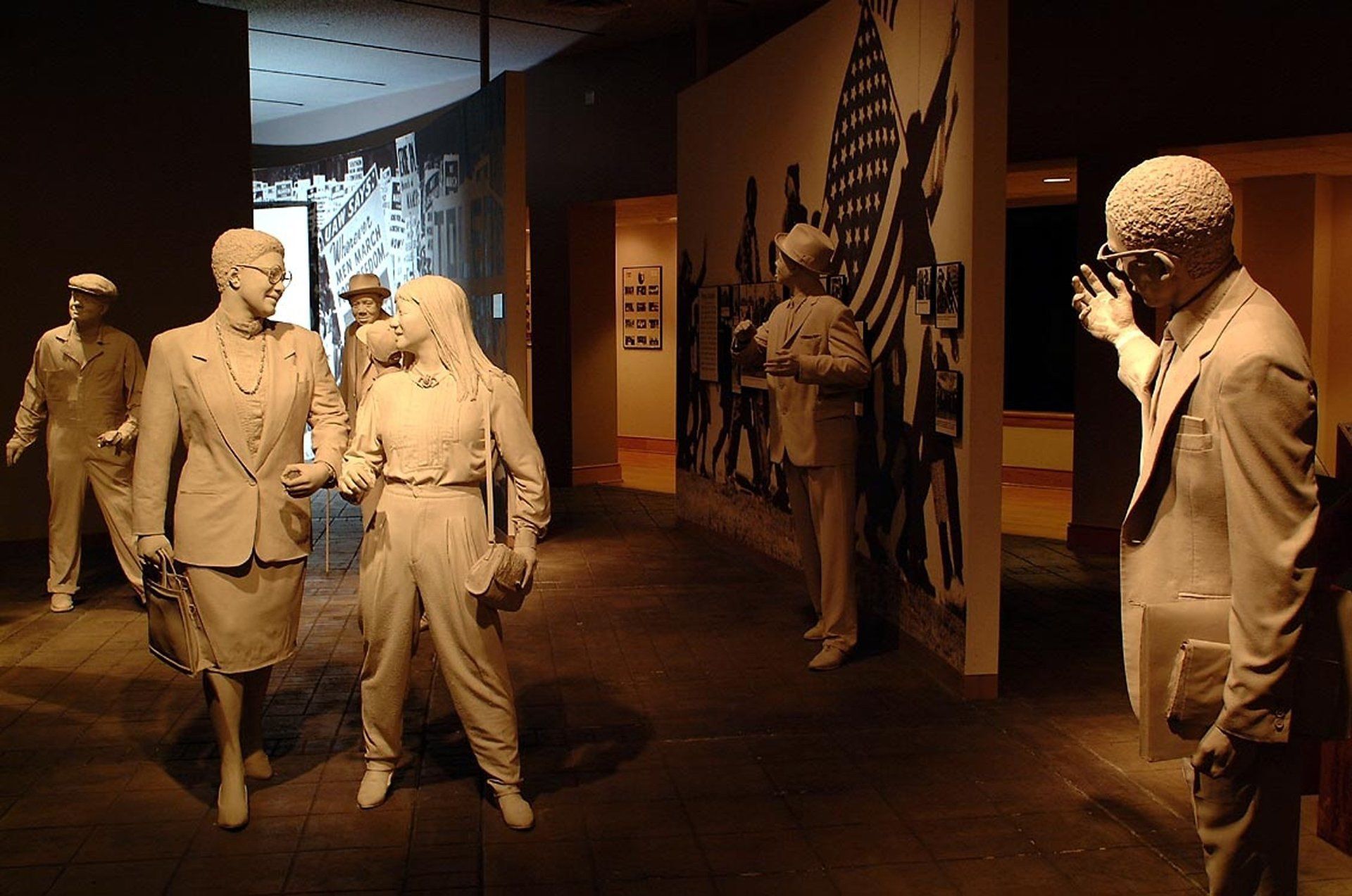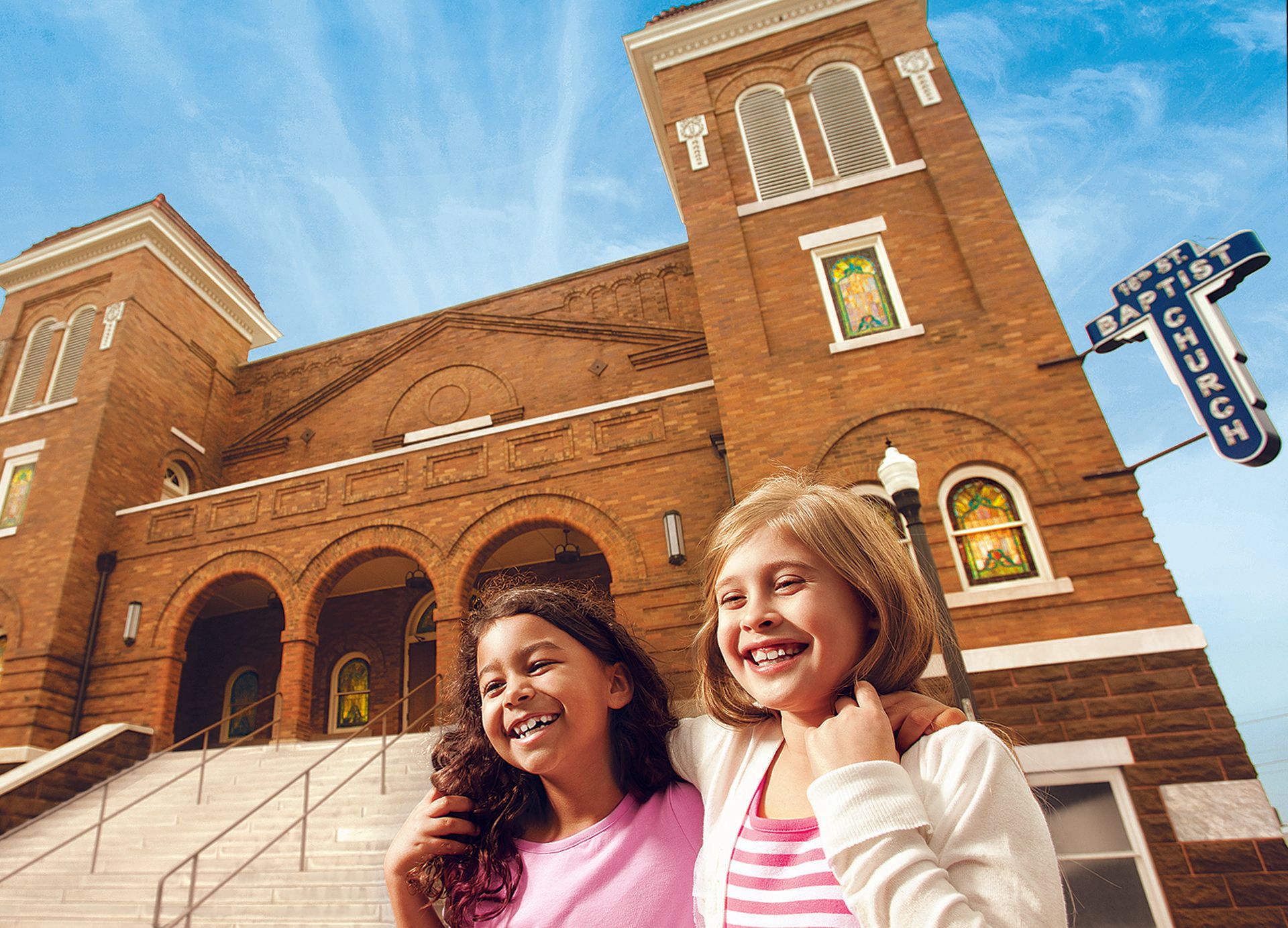Back to Alabama
Birmingham
Birmingham is a playful city with fine dining, outlet shopping, civil rights history, jazz clubs and the location of one of the last southern juke joints. The city includes Red Mountain Park with nature hikes and a series of zip lines through treetops. Birmingham boost impressive museums and historical sites including the 16th Street Baptist Church nominated as a world heritage site for its civil rights activities. Located across the street is the Birmingham Civil Rights Institute. Twenty minutes away in a neighbourhood is grave digger Henry Gipson’s home where Saturday night everyone is welcome visit his backyard where Gips Place is located, one of the few true Juke Joints remaining in the south.
Though Birmingham stands in the heart of the Deep South, it is not an Old South city. Founded in 1871 at the crossing of two railroad lines, the city blossomed through the early 1900s as it rapidly became the South’s foremost industrial centre. The young town grew so quickly that people said it was “just like magic,” and the nickname “The Magic City” was born. Following World War II, Birmingham’s legendary iron and steel industry gradually was replaced by a work force of medical and engineering professionals. Today, medicine and medical-related businesses are the largest employer in the area.
The traditional heart of Birmingham’s downtown is an 85-square-block zone encompassing an interesting blend of architectural periods and styles. Early 1900s skyscrapers are within view of their striking contemporary counterparts, and quiet neighborhoods are nestled in woods just minutes away.
Suggested Itineraries
Suggested Accommodation
Country Inn and SuitesModerate
From £62 per room per night
Near the botanical gardens and zoo, and 15 minutes drive from downtown, with the Civil Rights District and Five Points area.
There is a selection of shops and restaurants close by. The hotel has an outdoor pool and the rooms are equipped with a coffee maker, iron and ironing board, hairdryer and refrigerator. Rates include continental breakfast and high speed wireless access.
The Elyton Hotel, Autograph Collection
Deluxe
From £168 per room per night
This Four Diamond hotel is among restaurants, bars and art galleries in a financial and entertainment district.
It features 111 guest rooms and 6 suites which includes Wi-Fi and flat-screen TVs, minifridges and coffeemakers. Suites add pull-out sofas. There is also a restaurant, a bar and a gym.
Sheraton BirminghamFirst Class
From £173 per room per night
Located in the heart of the downtown area, close to all the city’s attractions, dining and nightlife.
The hotel has a restaurant, sports bar, indoor pool, jacuzzi and fitness centre. The rooms are well equipped with tea / coffee maker, iron and ironing board, hairdryer and high speed internet access. Children under 12 years stay free in the room when sharing existing bedding.
Redmont Hotel Birmingham, Curio Collection by Hilton
Moderate
From £140 per room per night
Located in downtown Birmingham and within walking distance to the Theatre District.
The 101 guest rooms offer WiFi, work area, an HD TV, an iHome dock and a coffeemaker. There is also an onsite restaurant, cafe and fitness centre.
Cobb Lane B&BInnFrom £94 per room per night
Located by the Historic Five Points area, Downtown Financial District and the University of Alabama.
The beautifully decorated Birmingham bed and breakfast has luxurious rooms. Each of their rooms has its own unique style and personality. Each of the inn's guestrooms has a theme and is furnished with pieces from the Victorian period. Enjoy breakfast in their formal dining room, served beneath a crystal chandelier on fine china in an atmosphere of Southern Hospitality.
Grand Bohemian Hotel, Autograph Collection
Deluxe
From £224 per room per night
Located minutes from downtown Birmingham in the quiet suburb of Mountain Brook, near to attractions such as Birmingham Zoo, Mountain Brook Village and the Birmingham Botanical Gardens.
Rooms feature Wi-Fi, flat-screen TVs, minifridges and coffeemakers, as well as desks and marble bathrooms. Suites add separate living rooms. There is also A rooftop restaurant with a terrace and there's also a bar. Other amenities include an outdoor pool and a gym, plus spa treatments.




